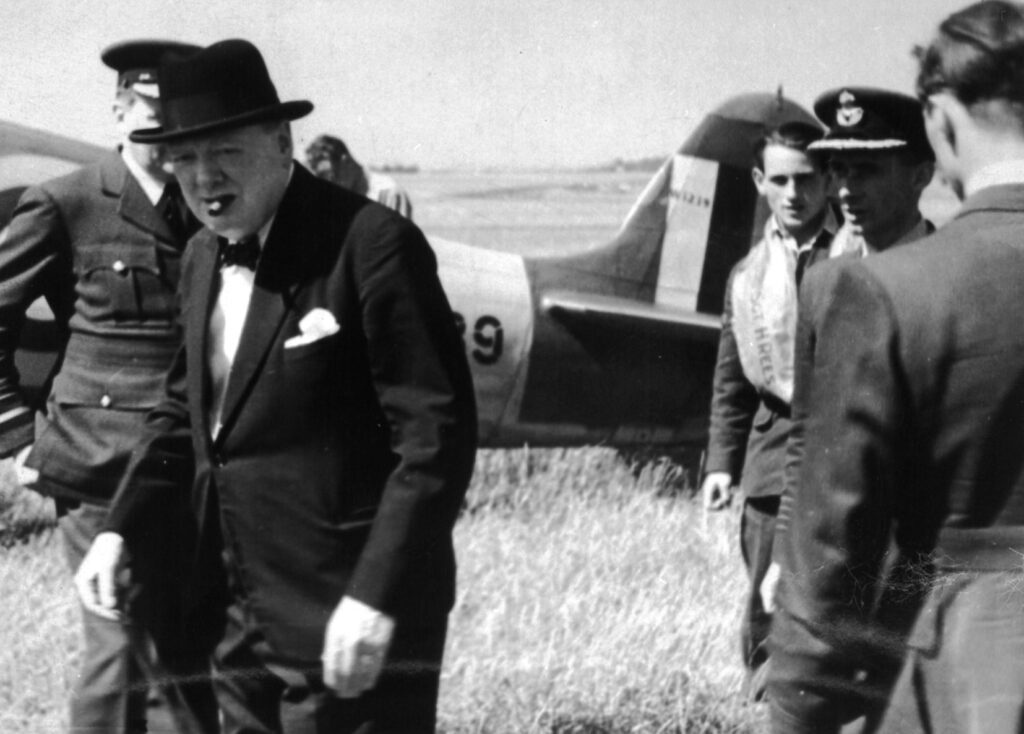The Battle of Britain was a crucial turning point in World War II. Fought between the German Luftwaffe and the Royal Air Force (RAF) from July to October 1940, it was the first major campaign to be fought entirely by air forces. After the fall of France, Hitler intended to invade Britain and launched a bombing campaign to destroy the RAF. However, the RAF, led by Air Chief Marshal Sir Hugh Dowding, utilized innovative defense strategies and advanced aircraft to successfully defend against the Luftwaffe. The Battle of Britain was a pivotal victory for the Allies and saved Britain from occupation, boosting morale and demonstrating the effectiveness of air defense. Winston Churchill’s leadership was instrumental in rallying the nation during this critical phase of the war. The triumph of the RAF over the Luftwaffe remains an iconic event, symbolizing courage and determination in the face of overwhelming odds.
The Battle of Britain: Churchill’s Triumph Over the Luftwaffe
Introduction
The Battle of Britain, which took place from July to October 1940, was a crucial turning point in World War II. This aerial conflict between the German Luftwaffe and the Royal Air Force (RAF) was fought over the skies of Britain and marked the first major campaign to be fought entirely by air forces.
Background
After the fall of France in June 1940, Britain stood alone against Nazi Germany. Hitler intended to invade Britain and needed to gain air superiority before launching his sea and land assault. The Luftwaffe started a relentless bombing campaign in an attempt to destroy the RAF and prepare the way for an invasion, known as Operation Sea Lion.
The RAF’s Response
The RAF, led by Air Chief Marshal Sir Hugh Dowding, employed a well-planned and innovative defense strategy known as the “Dowding System.” This system utilized radar stations to detect incoming raids, a command and control network to coordinate fighter interceptions, and advanced aircraft like the iconic Spitfire and Hurricane.
The Battle Begins
The Battle of Britain officially began on July 10, 1940, when German bombers targeted coastal shipping and ports. The Luftwaffe soon shifted their focus to RAF airfields and radar installations, ultimately attempting to destroy the RAF’s ability to defend against invasion.
The Blitz
In response to a bombing raid that accidentally led to the destruction of non-military areas, particularly London, Hitler ordered a shift in tactics. The Luftwaffe increased their targeting of cities and populations, initiating what became known as the Blitz. This diversion allowed the RAF some relief as they repaired airfields and prepared for the next phase of the battle.
The Turning Point
One of the key turning points in the Battle of Britain occurred on September 15, 1940, known as “Battle of Britain Day.” The Luftwaffe launched their largest attack yet, hoping to overwhelm the RAF and deliver a fatal blow. However, the RAF, with the support of radar and efficient command and control, successfully repelled the German assault, causing significant losses to the Luftwaffe.
Churchill’s Leadership
Winston Churchill, the British Prime Minister at the time, played a crucial role in rallying the nation and boosting morale during this critical phase of the war. His inspirational speeches and unwavering determination united the British people, and his strong presence provided essential support to Dowding and the RAF.
Victory and Legacy
The Battle of Britain was a pivotal victory for the Allies. The RAF’s success in fending off the Luftwaffe prevented the planned invasion of Britain, forcing Hitler to reconsider his strategy. This victory not only saved Britain from occupation but also demonstrated the effectiveness of air defense and boosted the morale of the Allied forces.
Conclusion
The Battle of Britain was a major turning point in World War II. The triumph of the RAF over the Luftwaffe was not only a testament to Britain’s resilience but also a significant blow to Hitler’s ambitions. The Battle of Britain remains an iconic event in history, serving as a symbol of courage and determination in the face of overwhelming odds.
